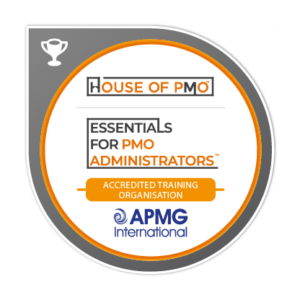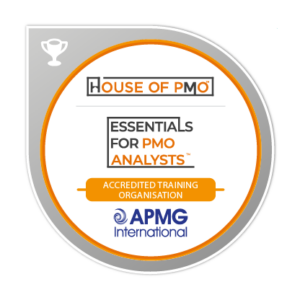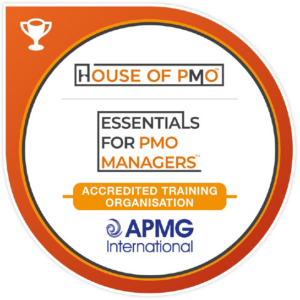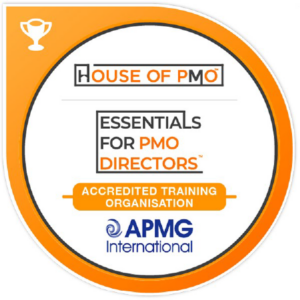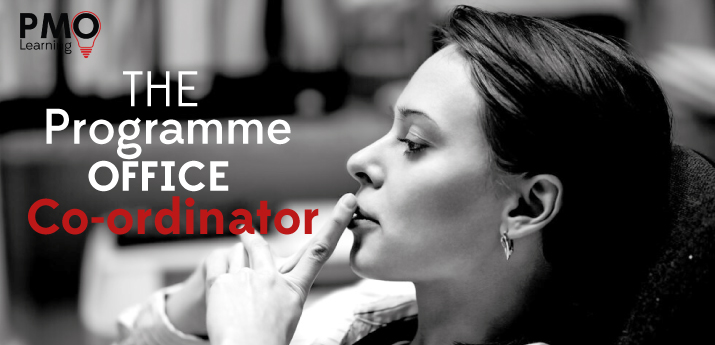
When we talk about the Programme Office or Programme Management Office, we’re talking about a PMO function that supports a programme. It might seem obvious to state this but actually, some organisations can and do use the term to mean other things – like a combination of projects, programme and centre of excellence PMO functions. Before portfolio management came on the scene – many organisations would use the term programme instead. It got confusing.
So to be clear, we’re talking about a PMO that supports a singular programme, which will constitute a number of projects which all – when all project delivery is completed – will reach the intended objective, benefit or strategic objective.
The Programme Management Office (PMO) tends to be a temporary arrangement i.e., the PMO is only in place whilst the programme is running. Once it has delivered its intended benefits, the PMO, along with the programme will be disbanded. Whilst temporary implies a short, fleeting thing, it is worth remembering that for some organisations, a programme can last many, many years.
So if Programme Management Offices are still one of the most popular types of PMOs in organisations today, the role of Programme Office Co-ordinator, one of the supporting roles within this type of PMO, will also be a popular role.
In this article we take a look at that position a little closer and find out what the top five skill areas are:
#1 Programme AND Project Knowledge
 To work within a programme setting it makes sense that a Programme Office Co-ordinator has experience of working within a project setting first. There is a need to understand all the project management level life cycles, processes, techniques and tools which makes it easier to transition to the programme level role. Many Programme Office Co-ordinators will have previously worked on a singular project or Project Management Office.
To work within a programme setting it makes sense that a Programme Office Co-ordinator has experience of working within a project setting first. There is a need to understand all the project management level life cycles, processes, techniques and tools which makes it easier to transition to the programme level role. Many Programme Office Co-ordinators will have previously worked on a singular project or Project Management Office.
The Programme Office Co-ordinator also needs to understand the landscape and infrastructure of a programme too. Part of their role will be about setting up and supporting programme level activities and some of these differ a lot from project-level activities (more on those later). There has to be an appreciation of the differences between programmes and projects – not least because the Programme Office Co-ordinator will be dealing with both Project Managers and the Programme Manager on a daily basis – both sets of people with different demands and requirements.
So understanding how programmes are set up and managed, then leads to additional programme level skills needed.
>>> Take a look at the Managing Successful Programmes (MSP) course
#2 Programme Techniques and Processes
There tends to be three specific areas of Programme Management Office work that differ from those in a Project Office. There will be others but these three are where the Programme Office Co-ordinator spends most of their time and effort.
1. Interdependency Management
Objective: to consolidate and integrate project level plans and activities into a programme level view to enable better planning and control.
Services:
- Set up the programme management dashboard (infrastructure) to enable reporting
- Create a standardised reporting schedule
- Provide a consolidated programme plan / schedule
- Create programme level risks and issues register
- Programme systems support
2. Benefits Management
Objective: to ensure the benefits identified are realised throughout the delivery and completion of the programme
Services:
- Creation of templates for Benefits Management Strategy, Benefits Profiles etc
- Facilitation of Benefits Management workshops
- Set up benefits realisation management system
- Track benefits realisation and reporting
>> Find out more about the Benefits Management and the PMO one day course from PMO Learning
3. Resource Management
Objective: To ensure the programme has the right resources available at the right time to deliver the programme successfully
Services:
- Resource requirements capture across all projects
- Assist in providing a consolidated program resource plan
- Scheduling and deployment of staff across the projects and program
- Forecasting and providing what-if analysis
- Demand and capacity management
- Management reporting
- Recruitment support – contractor procurement and management, onboarding
- Training support
>> Take a look at the PMO Learn! event which features resource management.
#3 Analytical Skills
 Just like the PMO Analyst role, the Programme Office Co-ordinator also spends a lot of their time with Management Information (MI). Programmes, with their interdependencies across the projects, demand that a rolled-up view of the programme can be obtained. That requires a Programme Office Co-ordinator to be able to set the best structure and processes which will enable them to receive the project level data in a way which allows them to see the information they really need.
Just like the PMO Analyst role, the Programme Office Co-ordinator also spends a lot of their time with Management Information (MI). Programmes, with their interdependencies across the projects, demand that a rolled-up view of the programme can be obtained. That requires a Programme Office Co-ordinator to be able to set the best structure and processes which will enable them to receive the project level data in a way which allows them to see the information they really need.
This part of the role does require advanced skills in tools – in the majority of cases this is still MS Excel – and the skills with this need to be advanced. In the more fortunate cases, an enterprise tool or dashboard is in place which enables Programme Office Co-ordinators to spend less time on the manual manipulation of data, and more time on understanding what the information is telling them. With this kind of set up, the Programme Office Co-ordinator’s role can provide real insights that enable the programme manager to be more informed when it comes to the decisions he or she needs to make. It’s the simple things like understanding how a 2-week delay on one project within the programme will have a knock effect to the other projects within the programme.
#4 Communications and Relationships
As a Programme Office Co-ordinator becomes more experienced in PPM, they too have more time to spend on developing their softer skills. After all, we know projects and programmes are about the people – it’s the people who make them successful and if we look at the role of the Programme Manager we can see just how much that role concentrates on the people management aspects rather than into the detail of control and delivery like the Project Managers. It stands to reason that the Programme Office Co-ordinator in a supporting role will be also closer to the people aspects.
This manifests itself with things like stakeholder management. The Programme Office Co-ordinator will be assisting in developing stakeholder profiles, maps, matrices, RACI models, communication plans and of course being one of the main conduits when it comes to communication flowing in and out of the programme. Skills in these areas come with experience but a focus on softer skills development is something that can definitely benefit in the longer term.
#5 Strategy and Business Understanding
Working on programmes brings the Programme Office Co-ordinator closer to the business than just working on projects. With projects, the objective is set and away everyone goes, delivering the project to the critical success factors. Working on a programme, where the success comes from delivering the intended benefits means the Programme Office has to have a greater understanding of where those intended benefits come from in the first place. In other words, the Programme Office needs to understand where the programme fits within the organisation’s strategy and business goals. If the organisation is investing in a programme – which could last many years, using hundreds of resources and burning through big budgets – it stands to reason that the Programme Office has to understand where the programme fits in the wider context of the organisation’s business-as-usual activities and what change they need in the future.
It’s the recognition that the programme will have many factors affecting its successful delivery and how the Programme Office can include these factors in the reporting it does to ensure the full picture is there. To do this, Programme Office Co-ordinators do understand the direction set by the business strategies; what other delivery activity (or strategy execution) has the potential to impact their programme; how they can make this visible through reporting and assist their Programme Manager.
I’ve always said that anyone working in a PMO, regardless of what kind it is, has to know as much as the Project Manager, Programme Manager or Portfolio Manager. They have to have the same level of knowledge about the processes, techniques and tools, the only difference is, they are not ultimately responsible for the outcomes. They are there to support their managers with the right information at the right time, which you can only do if you know as much as your manager does.
Consider the Managing Successful Programmes (MSP) course and certification as part of your development:
Enjoying Our Blog?
Sign up and receive all our articles (we’ll send you an update once a week!) plus special offers and events:
photo credit: petukhov.anton via photopin (license)






